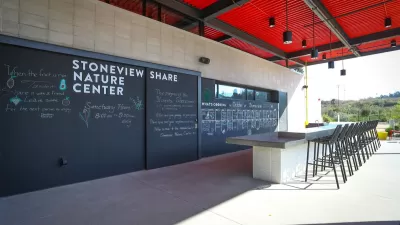Parks are vital to sustainability, providing environmental, economic, and social benefits that improve public health, support biodiversity, and promote equity, as recognized in Los Angeles County’s OurCounty Plan.

Parks are central to sustainable planning, providing vital environmental, economic, and social benefits. They act as green infrastructure, supporting biodiversity, mitigating heat islands, and managing stormwater to reduce flooding. Parks also contribute to economic sustainability by attracting tourism, generating jobs, and reducing healthcare costs through the promotion of physical and mental well-being. Their role in fostering social sustainability is critical, as they serve as inclusive spaces for communities, enhancing social cohesion and offering opportunities for education, recreation, and cultural activities.
In Los Angeles County, the OurCounty Sustainability Plan recognizes the importance of parks in achieving a sustainable, equitable, and resilient future. The plan integrates findings from the Countywide Parks Needs Assessment and supports the implementation of Community Parks and Recreation Plans to address the disparities in park access in park-poor communities. The plan also highlights the urgency and need to advance park equity and promote environmental justice, particularly in underserved and marginalized communities, by ensuring park access and availability for all residents.
In addition, the plan emphasizes the connection between parks and public health, recognizing that parks can effectively help to combat chronic diseases and alleviate mental health issues. Social equity is a guiding principle of the OurCounty Plan, with a focus on engaging local residents in sustainability efforts, including park planning, design, and development. This participatory approach ensures that parks reflect community desires and needs, fostering a sense of ownership and contributing to a more sustainable and resilient Los Angeles County.
FULL STORY: Parks as a Cornerstone of Sustainability

Alabama: Trump Terminates Settlements for Black Communities Harmed By Raw Sewage
Trump deemed the landmark civil rights agreement “illegal DEI and environmental justice policy.”

Planetizen Federal Action Tracker
A weekly monitor of how Trump’s orders and actions are impacting planners and planning in America.

How Atlanta Built 7,000 Housing Units in 3 Years
The city’s comprehensive, neighborhood-focused housing strategy focuses on identifying properties and land that can be repurposed for housing and encouraging development in underserved neighborhoods.

In Both Crashes and Crime, Public Transportation is Far Safer than Driving
Contrary to popular assumptions, public transportation has far lower crash and crime rates than automobile travel. For safer communities, improve and encourage transit travel.

Report: Zoning Reforms Should Complement Nashville’s Ambitious Transit Plan
Without reform, restrictive zoning codes will limit the impact of the city’s planned transit expansion and could exclude some of the residents who depend on transit the most.

Judge Orders Release of Frozen IRA, IIJA Funding
The decision is a victory for environmental groups who charged that freezing funds for critical infrastructure and disaster response programs caused “real and irreparable harm” to communities.
Urban Design for Planners 1: Software Tools
This six-course series explores essential urban design concepts using open source software and equips planners with the tools they need to participate fully in the urban design process.
Planning for Universal Design
Learn the tools for implementing Universal Design in planning regulations.
Jessamine County Fiscal Court
Caltrans
Institute for Housing and Urban Development Studies (IHS)
City of Grandview
Harvard GSD Executive Education
Toledo-Lucas County Plan Commissions
Salt Lake City
NYU Wagner Graduate School of Public Service





























